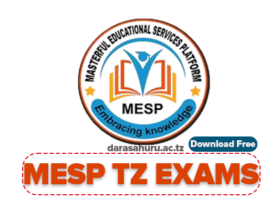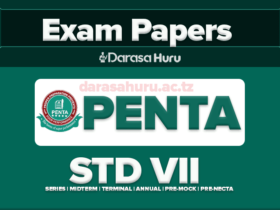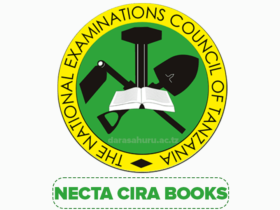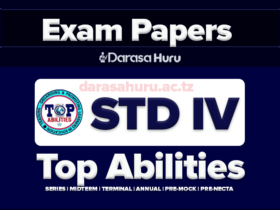Maboresho (Improvements) ya Scheme of Work 2025/2026
Welcome to our website darasahuru.ac.tz. In this article you will find mabadiliko katika Scheme of Work According to the revised 2023 Curriculum. Improvements in the Scheme of Work According to the revised 2023 Curriculum by Tanzania Institute of Education (TIE), Maboresho (Improvements) ya Scheme of Work 2025/2026, Scheme of Work Competence Based Model
A Scheme of Work is a systematic and organized plan that outlines the objectives, content, teaching methods, resources, and assessments for a specific subject and class.
IMPROVEMENTS IN THE SCHEME OF WORK
The Revised 2023 curriculum has introduced significant changes across all aspects of education, particularly in its core components. These essential elements encompass the syllabus:
- The scheme of work, and
- The lesson plans.
The essential components of the Scheme of work include:
A. Preliminary information
- Name of the school
- Teacher’s Name
- Subject
- Year
- Term
B. Components
Regarding the improvements made on the Scheme of work, the revised secondary school scheme of work has 12 components
- Main Competence
- Specific Competences
- Learning Activities
- Specific Activities
- Month
- Week
- Number of Periods
- Teaching and Learning Methods
- Teaching and Learning Resources
- Assessment Tools
- References
- Remarks
However, All components are taken directly from the syllabus except the specific learning activity, month, week, references, and remarks.
The references are written following APA style version 7.
<> Author, year of publication, title of the book, publisher
Sample
The specific learning activity is obtained by deconstructing the main learning activity taken directly from the syllabus
In writing the references we normally address three things.
1. Strength
The activity to describe the periodic table of elements has been facilitated and completed.
2. Weakness
However, a few specific activities were not covered because we were having a guest visit in our school.
3. Way forward
I expect to use extra time to cover the remaining activities
General characteristics of the specific learning activity
➥ Enable the student to build the intended competence (knowledge, skills and attitude)
➥ Enable the student to use knowledge and skills in other contexts or for other purposes
➥ Enable the student to think creatively and be creative/discoverer in various things
➥ Reflect the real environment of the student/child
➥ Be consistent with the schedule, i.e. time allocated
➥ Questions to consider when preparing specific activities
➥ What activities do you want your students to learn?
➥ Do the activities build/contribute to the main learning activity?
➥ Are the activities constructive? (focus on measurable verbs)
➥ Are the activities arranged in a sequence from easy to difficult?
➥ Are the activities have an indicator of competence building?
Examples of How to develop specific learning activities
Main learning activities
Describe the periodic table of elements
Specific learning activities
👉 Recognise first 20 elements of the periodic table by names along with their symbols
👉 Describe how elements are arranged by atomic number and group similar properties (metals and non metals
👉 Demonstrate how to use periodic table to find atomic mass and number
👉 Compare and contrast properties of metals and non metals
👉 Argue the importance of periodic table in predicting the behaviour of elements during chemical reactions
👉 In designing specific activities, you should break down the learning activities taken from the syllabus into specific activities.
The criteria to consider include the following:
(a) the specific activity should contribute to the learning activity;
(b) it should focus on the measurable verbs (e.g. identify, explain, define, analyse, etc.); and
(c) the specific activities should be organized from simple to complex
Matrix of the Scheme of work
Activity 01
Choose one main activity from your subject syllabus. Deconstruct it into specific activities
Writing reference
Activity 02
Choose any textbook of your subject and write the reference using a current APA Style.








Nahitaji scheme of work ya basic math form 1 pamoja na BAM
Endelea Kutembelea tunaweka zote kila siku tunaongeza
Nahitaji scheme of work ya history form one 2025